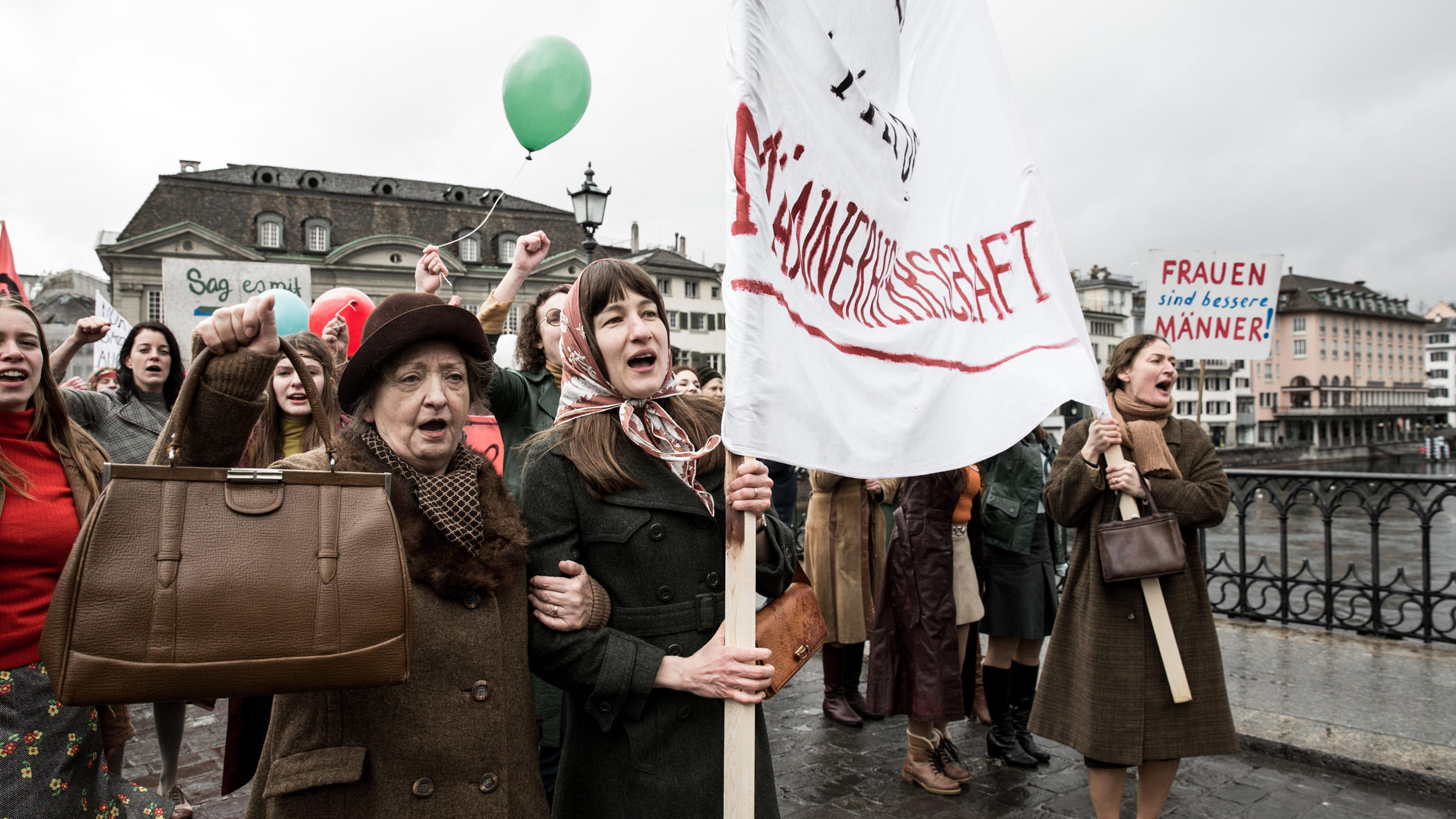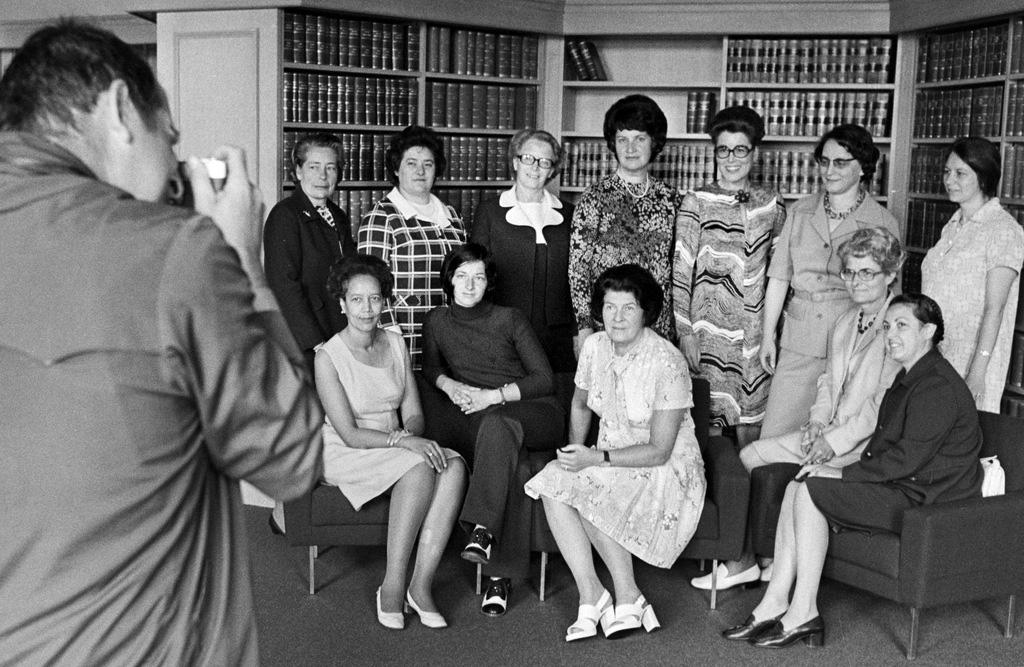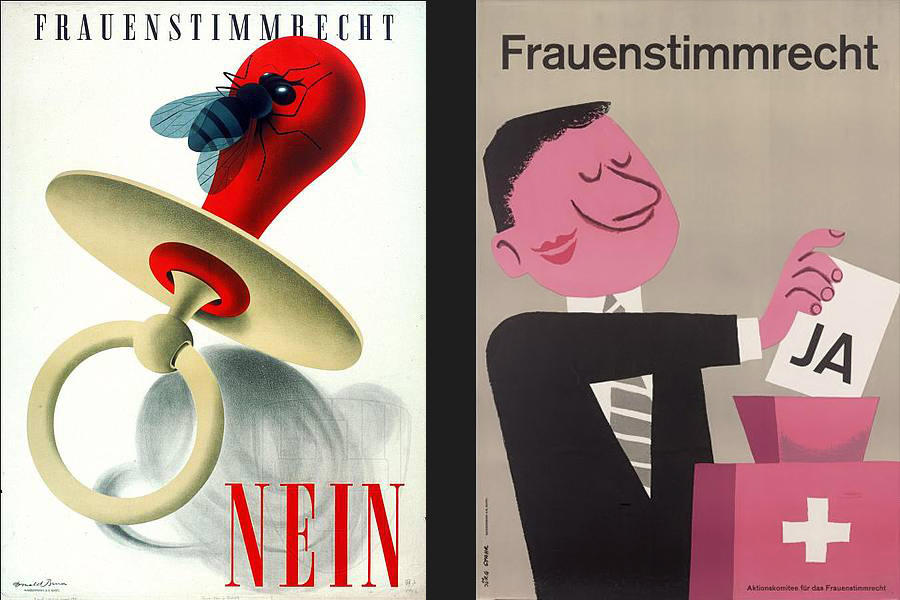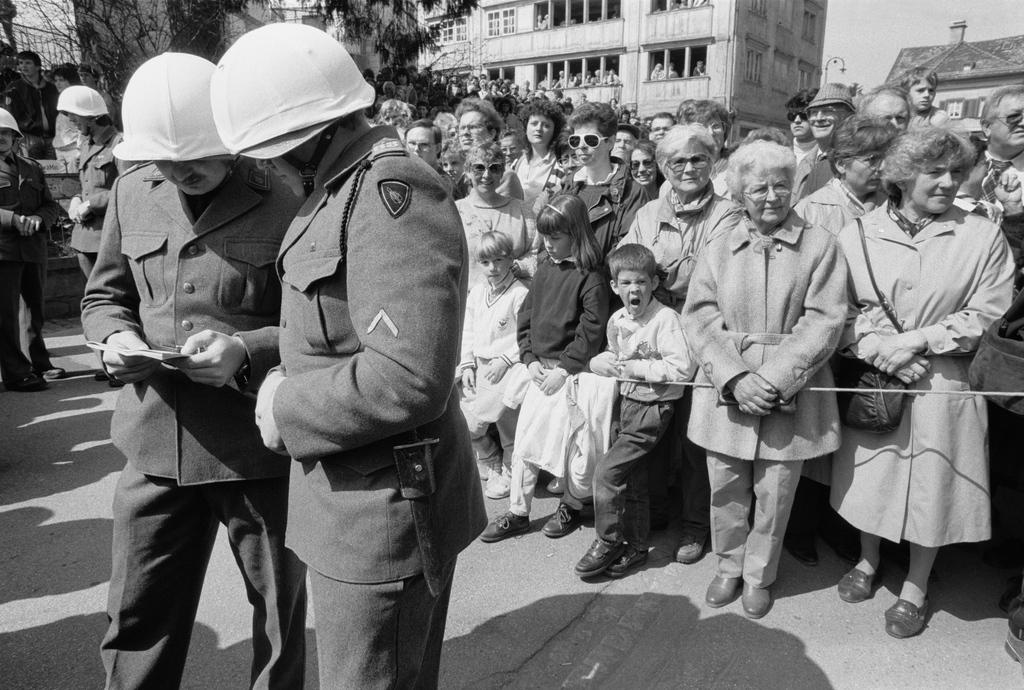Suffrage film ‘The Divine Order’ is Swiss Oscars candidate

A comedy that captures Switzerland’s belated and reluctant recognition of women’s right to vote has been chosen as the country’s official entry in the Foreign Language Film category of the award instituted by the Academy of Motion Picture Arts and Sciences.
The Swiss-German dialect film, Die göttliche Ordnung (The Divine Order), which hit Swiss cinemas on March 8 – International Women’s Day – was directed by Petra Volpe, who also wrote the script. The story is told by a housewife and mother who becomes active in the women’s suffrage movement in her small town. But small encounters throughout make it clear the real story is about the Swiss patriarchy under which men, women and children all suffer.
While the rest of the world was undergoing social transformation, Switzerland in 1971 seemed stuck in a time warp with disenfranchised women and practices such as imprisonment of young people for “licentious behaviour” or “unwillingness to work” still current.
The film has already won accolades at home and abroad. These include awards for best screenplay and best actress (Marie Leuenberger) at the Swiss Film Awards, as well as Best Actress in an International Narrative Feature Film (Marie Leuenberger) and The Nora Ephron Prize (Petra Volpe) at the Tribeca Film Festival in New York.
Fans will have to wait till January 2018 to know if the film makes the shortlist of entries that are nominated for the Oscars. The awards will be handed out on March 4, 2018 at the Dolby Theater in Los Angeles.
1868: Zurich women unsuccessfully call for suffrage on the occasion of a cantonal constitutional revision
1957: A revision of the civil protection law is set to include a requirement that women participate. Women’s groups resist, arguing they don’t yet have the right to vote. The government quickly puts together a draft law introducing women’s suffrage to save the civil protection project.
1959: Women’s right to vote is turned down at the ballot box with 67% against.
1963: Switzerland joins the Council of Europe but cannot join the European Human Rights Convention because of the lack of women’s suffrage. In 1969, the cabinet launches a new referendum.
1971: Male citizens vote to introduce women’s suffrage with 66% in favour.
1990: Canton Appenzell Inner Rhodes becomes the last canton to introduce women’s suffrage at the local level after being forced to do so by a federal court order.

In compliance with the JTI standards
More: SWI swissinfo.ch certified by the Journalism Trust Initiative











You can find an overview of ongoing debates with our journalists here . Please join us!
If you want to start a conversation about a topic raised in this article or want to report factual errors, email us at english@swissinfo.ch.